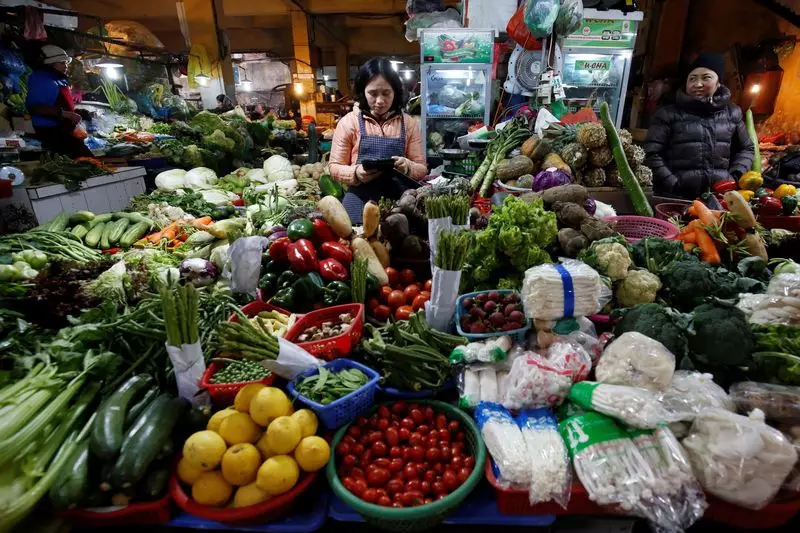Vietnam’s economy experienced an acceleration in growth during the second quarter of this year, largely due to robust exports. The country’s Gross Domestic Product (GDP) expanded to 6.93% in the second quarter, marking a significant increase from the 5.87% growth recorded in the first quarter. This positive trend has been attributed to the government’s efforts to stimulate business activity, particularly in key export sectors such as smartphones, electronics, and garments. Despite facing challenges such as weak global demand and power shortages in the past, Vietnam is now witnessing a more favorable economic landscape.
While Vietnam’s economic growth has been on an upward trajectory, the country continues to grapple with rising inflation. Consumer prices in June rose by 4.32% from a year earlier, nearing the government’s inflation target ceiling of 4.5% for the year. Average consumer prices in the first half of the year increased by 4.08% year-on-year, indicating a persistent inflationary pressure. The government has acknowledged the need to closely monitor price movements and make necessary adjustments to mitigate the impact on inflation. Additionally, recent decisions to raise base salaries for state employees and pensions for retirees are expected to further fuel inflation pressures.
In response to the economic challenges posed by inflation, the Vietnamese government has reaffirmed its commitment to sustaining growth momentum. Prime Minister Pham Minh Chinh has expressed confidence that second-quarter GDP growth will outpace that of the first quarter, emphasizing the government’s policy focus on prioritizing growth to achieve the target range of 6.0%-6.5% for the year. Flexible monetary policies, aimed at reducing lending interest rates, cutting fees, and increasing public investment, will be pivotal in supporting the country’s economic recovery.
The International Monetary Fund (IMF) has projected Vietnam’s economic growth to be close to 6% this year, fueled by strong external demand, resilient foreign investment, and accommodative policies. However, the IMF has also highlighted the presence of downside risks, particularly in relation to exchange rate pressures and inflation. The prolonged impact of exchange rate fluctuations could potentially exacerbate Vietnam’s domestic inflation, given the current easy monetary conditions. As a result, economic stakeholders are advised to exercise caution and vigilance in navigating the uncertain global economic environment.
Vietnam’s economy is showing resilience and dynamism in the face of challenges posed by inflation and external risks. The country’s robust export performance, coupled with government stimulus measures, has laid a strong foundation for sustained economic growth. Moving forward, a balanced approach that addresses inflation concerns while promoting growth will be essential in ensuring Vietnam’s economic stability and prosperity.

